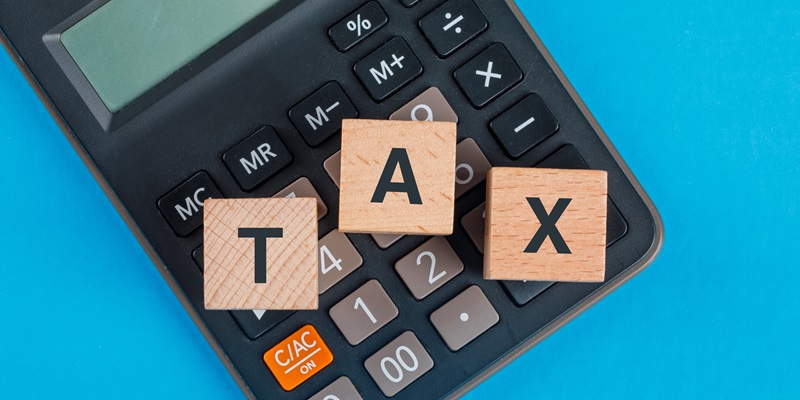In an era marked by technological advancements, blockchain technology has emerged as a potential game-changer in various industries. One area that stands to benefit significantly from this innovation is tax reporting. By implementing blockchain technology, governments and tax authorities can establish an immutable ledger of financial transactions, offering real-time insights into financial activities and ultimately reducing tax evasion and fraud.
Drawbacks of current tax reporting systems
In traditional tax reporting systems, tax authorities often face challenges due to the lack of real-time access to financial data. This delay makes it difficult for them to detect tax evasion or fraudulent activities promptly, limiting their ability to effectively enforce tax laws.
Explanation of how blockchain creates an immutable ledger of financial transactions
Blockchain technology offers a potential solution to the aforementioned challenges by creating an immutable ledger of financial transactions. Its underlying structure ensures that all financial transactions are securely and permanently stored, reducing the risk of fraudulent activity.
Advantages of the immutability feature in reducing fraudulent activity
The immutability feature of blockchain plays a vital role in improving tax reporting systems. By providing a tamper-proof record of financial transactions, it becomes significantly more challenging for fraudulent activities to go undetected. This enhanced security feature strengthens the integrity of the tax reporting process, instilling confidence in both taxpayers and tax authorities.
Transparency and accessibility in tax reporting
One of the key advantages of blockchain technology in tax reporting is its ability to provide transparency and accessibility to financial records. By utilizing blockchain, both taxpayers and tax authorities can access and validate the same set of records, reducing discrepancies and promoting trust in the reporting process.
Promotion of transparency in the tax reporting process
The transparency offered by blockchain technology has a profound impact on promoting an efficient and fair tax system. As all transactions are recorded on a public ledger, taxpayers can have greater visibility into their tax obligations, reducing confusion and disputes. Likewise, tax authorities can easily verify and audit reported transactions, enhancing their ability to enforce tax compliance.
Real-time tracking and verification of transactions
Unlike traditional tax reporting systems, blockchain records transactions in real-time. This feature enables tax authorities to track and verify transactions promptly, minimizing the risk of fraudulent reporting or evasion. This instant access to information enables tax authorities to proactively identify irregularities and take appropriate actions swiftly.
Automation of tax calculations and payments
Smart contracts, which are self-executing agreements built on blockchain technology, have the potential to revolutionize tax calculations and payments. By automating these processes, smart contracts eliminate the need for manual intervention, reducing errors and streamlining the overall tax reporting system. This automation also improves efficiency as calculations and payments are automatically executed based on predefined rules.
Security and protection against tampering
Explanation of the robust cryptographic techniques employed by blockchain:
Blockchain technology employs robust cryptographic techniques, making it extremely difficult for unauthorized parties to tamper with the data stored within the blockchain. Encryption and hashing algorithms ensure that each transaction is securely validated and linked to the previous one, creating an unchangeable chain of blocks.
Benefits of automating the tax reporting process through blockchain
By automating the tax reporting process through blockchain technology, governments can significantly reduce the administrative costs associated with tax collection. The elimination of manual data entry and reconciliation minimizes human errors, saving time and resources for both taxpayers and tax authorities. The streamlined and automated nature of blockchain-based tax reporting leads to substantial time and cost savings for all parties involved. Taxpayers can spend less time on tedious paperwork, while tax authorities can reallocate resources to focus on high-priority tasks, such as tax enforcement and policy implementation. Ultimately, this results in a more efficient tax system.
Challenges and considerations for transitioning to blockchain-based tax reporting
Transitioning to blockchain-based tax reporting requires careful consideration and amendments to existing legislation and regulations. Governments must take proactive steps to create a legal framework that accommodates the use of blockchain technology while safeguarding taxpayer rights and data privacy. Taxpayers will need to adapt to the new reporting methods facilitated by blockchain technology. This may involve education and training to ensure they understand how to interact with the blockchain-based tax reporting system effectively. Governments and tax authorities should provide support and resources to facilitate this transition smoothly.
Blockchain technology has the potential to revolutionize tax reporting, offering enhanced transparency, efficiency, and security. With its immutable ledger, real-time tracking capabilities, smart contracts, and robust cryptographic techniques, blockchain provides a solid foundation for a modern tax system. Governments and tax authorities need to embrace this technology, assess the legal and technical considerations, and work towards implementing blockchain-based tax reporting. By doing so, they can create a fairer, more efficient, and trusted tax ecosystem for the benefit of both taxpayers and society as a whole.

